On March 20, 2025, the "Talent Gathering in Jingchu·Building a Support Point" Entrepreneurial Mentor Training Camp, hosted by the Department of Human Resources and Social Security of Hubei Province, successfully concluded at our university. This training camp aimed to deeply implement the spirit of the 20th National Congress of the Communist Party of China and the National People's Congress, as well as the strategic deployment of innovation and entrepreneurship outlined in the Hubei Provincial Government Work Report, to gather forces for Hubei's promotion of technology-supported innovation and entrepreneurship.
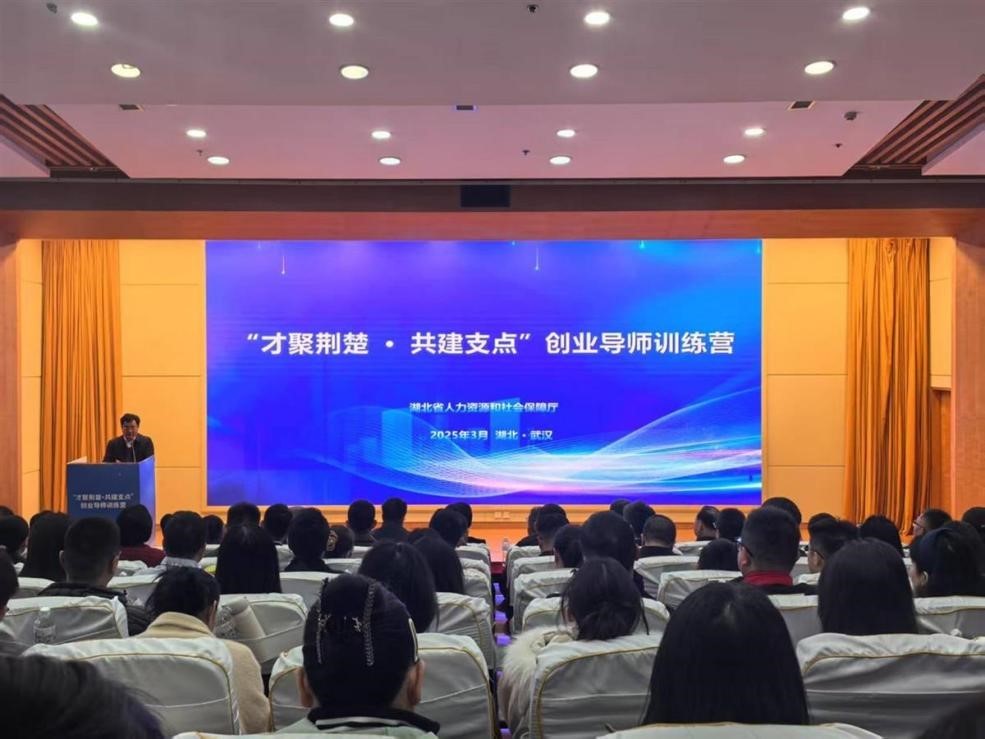
At the opening ceremony, Ma Liqiang, a member of the Party Committee and Deputy President of Wuhan University of Technology, delivered a speech on behalf of the university. He expressed sincere gratitude for the trust and support of the Provincial Department of Human Resources and Social Security and extended a warm welcome to all leaders and participants. Ma Liqiang introduced that the Wuhan University of Technology has a long history in education and has made significant achievements in talent cultivation, scientific research, innovation, and entrepreneurship education. In recent years, the university has not only made remarkable progress in building national-level first-class undergraduate programs and cultivating outstanding engineers but has also won numerous honors in innovation and entrepreneurship education. The university has established several "Dream Studios" for innovation and entrepreneurship, successfully incubating many "ten-million-level" student start-ups. In hosting this training camp, the university has fully leveraged its disciplinary and professional advantages to ensure the high-quality completion of the training.
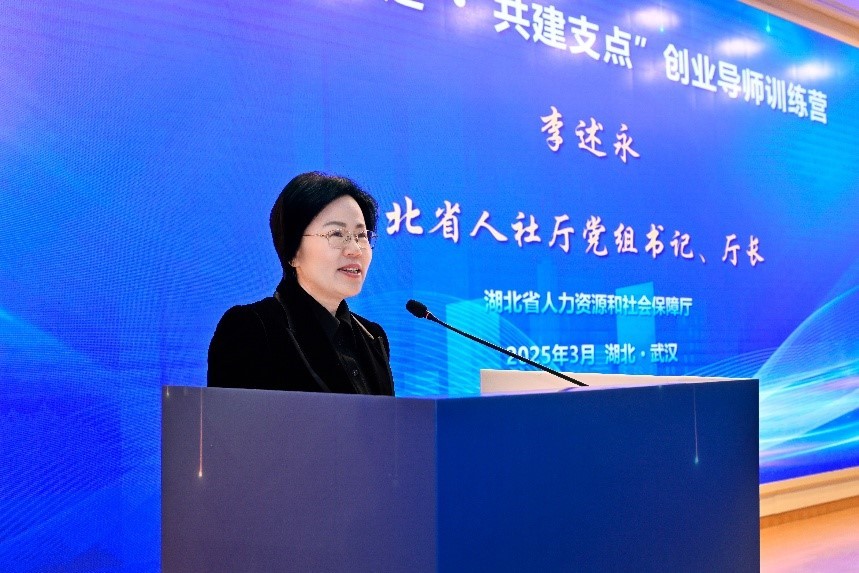
Li Shuyong, Secretary of the Party Group and Director of the the Department of Human Resources and Social Security of Hubei Province attended the opening ceremony and delivered the first lecture. She elaborated on the importance of innovation and entrepreneurship, emphasizing that they are crucial drivers of societal progress, the country's advancement towards building a strong nation and national rejuvenation, Hubei's acceleration of becoming a strategic support point, and the promotion of comprehensive human development. Director Li pointed out that current entrepreneurs face challenges such as a lack of funds, difficulties in incubation and market expansion, fragmented entrepreneurial policies, and insufficient mentoring. In response, the human resources and social security department will collaborate with various stakeholders to build an entrepreneurial incubation system that spans the entire entrepreneurial cycle. Efforts will focus on strengthening entrepreneurial awareness, guiding entrepreneurial projects, securing funding, enhancing entrepreneurial platform support, and creating a robust entrepreneurial atmosphere. Additionally, there will be a special focus on supporting postdoctoral and faculty innovation and entrepreneurship, stimulating innovation across various groups.
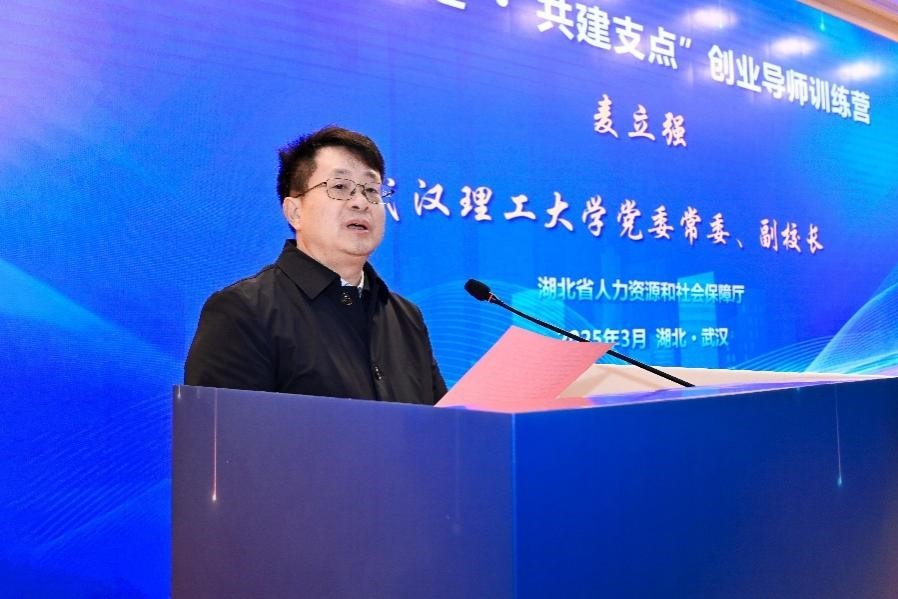
This training camp represents another significant contribution by our university to the innovation and entrepreneurship efforts in Hubei Province, following the previous meeting of the provincial university entrepreneurship college deans. It also demonstrates social recognition of the university's work in innovation and entrepreneurship education. The camp was organized by the School of Entrepreneurship for overall planning and course design, while the School of Continuing Education was responsible for logistical support. The two schools worked closely together to create an excellent learning and living environment for the participants, ensuring the smooth execution of the training activities.
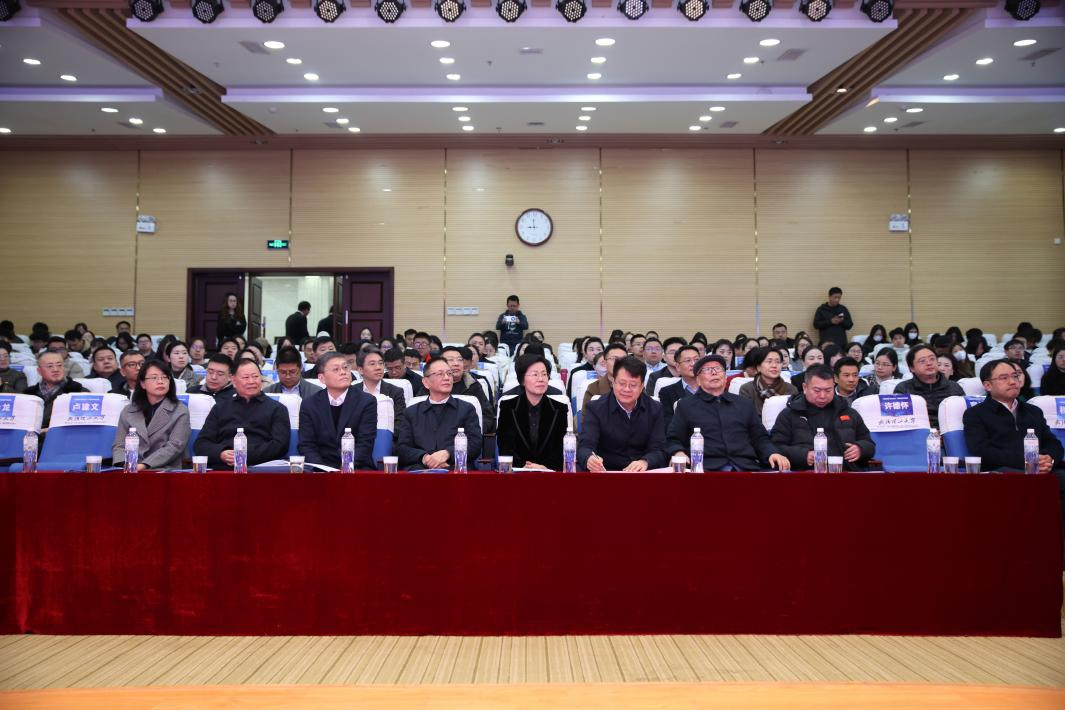
The camp lasted for four days and attracted participants from 50 universities, vocational colleges, and entrepreneurial training institutions in Hubei Province. The camp invited eight senior experts to form a strong teaching team. Professor Xie Kefan from Wuhan University of Technology focused on "Innovation and Entrepreneurship Risk Management," providing a comprehensive analysis of strategies for managing entrepreneurial risks from theory to practice. Professor He Yanxiang from Wuhan University discussed "How to Cultivate 'Smart Innovation and Entrepreneurship Talent' in the Era of Artificial Intelligence," exploring talent cultivation pathways in the new era. Yu Ping, Dean of the School of Entrepreneurship at Wuhan University of Technology, and Gong Bo, Director of the Research Institute at Carbon Emissions Registration and Clearing (Wuhan) Co., Ltd., jointly delivered a lecture on "Practical Science and Technology Finance," improving participants' practical skills through a combination of training and real-world exercises. SYB entrepreneurship trainer Feng Zhuo organized a visit to exemplary youth innovation and entrepreneurship enterprises and hosted a workshop on "Problem Analysis and Solution Training" to enhance participants' practical abilities. Wu Di, an expert in innovation and entrepreneurship education at Sichuan University, shared incubation experiences in "University Science and Technology Innovation and Entrepreneurship Project Identification and Cultivation." Wang Huizhong, Assistant Director of the Wuhan Institute of Industrial Innovation and Development, expanded participants’ industry perspectives through a lecture on the "Science and Technology Innovation Supply Chain Platform," helping them understand the importance and operational model of industry supply chains in innovation and entrepreneurship.
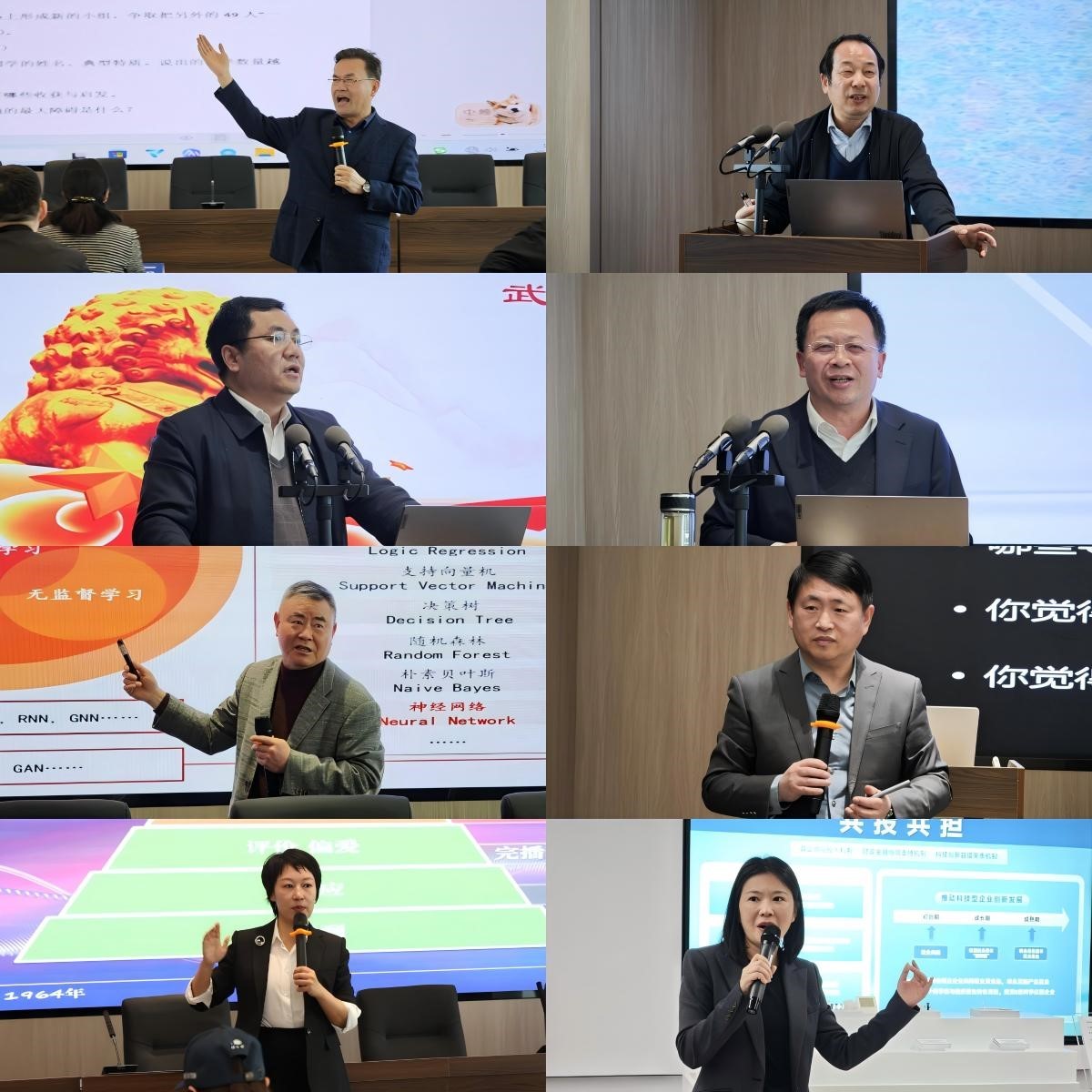
The camp's curriculum was rich and comprehensive, covering several key aspects of innovation and entrepreneurship. Topics ranged from talent cultivation concepts to innovative thinking under cutting-edge technologies, risk management, financial practices, problem-solving, project identification, and supply chain expansion. Each course is closely aligned with current innovation and entrepreneurship needs. Through specialized lectures, enterprise visits, training-combat integration, and group discussions, the program deeply integrated theoretical knowledge with practical application, allowing participants to practice while learning and grow through practice.
During the training, participants visited the University’s Entrepreneurship Building to conduct enterprise research, gaining a deeper understanding of business operations and innovation practices while exploring entrepreneurial development pathways. The combination of training and real-world exercises effectively promoted the transformation of theoretical knowledge into practical skills. During group discussions, participants actively exchanged ideas and shared experiences, progressing together. Additionally, they visited the Science and Technology Achievements Exhibition Hall at the Wuhan Institute of Industrial Innovation and Development, observing the latest developments in fields such as life and health, advanced materials, and intelligent manufacturing. They engaged in enthusiastic discussions about technology application scenarios and industrialization pathways, expanding their horizons and generating new ideas for future entrepreneurial guidance.
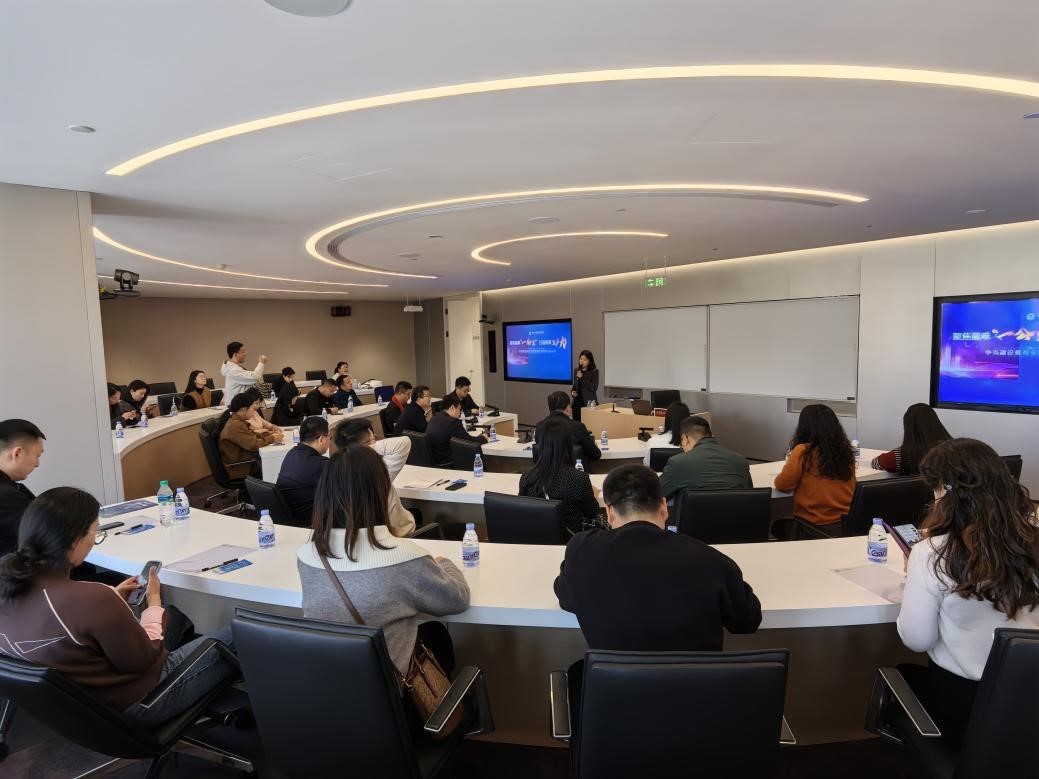
At the closing ceremony, Lu Wenyan, Secretary of the Party Committee and Director of the Hubei Provincial Labor and Employment Service Center, congratulated the participants on their completion and expressed gratitude to the mentors, partners, and staff. The rich curriculum of the training camp, covering entrepreneurial policy interpretation and business model design, effectively enhanced participants' abilities. Yu Ping, Dean of the School of Entrepreneurship at Wuhan University of Technology, delivered a closing speech, offering three expectations for the participants: to continue learning and keep pace with the times, to support entrepreneurs equally, and to maintain the original spirit and bottom line. He also promised to provide ongoing support. Afterward, a certificate award ceremony was held, and everyone took a group photo. Graduates will serve as mentors to assist entrepreneurs and promote the development of innovation and entrepreneurship in Hubei.
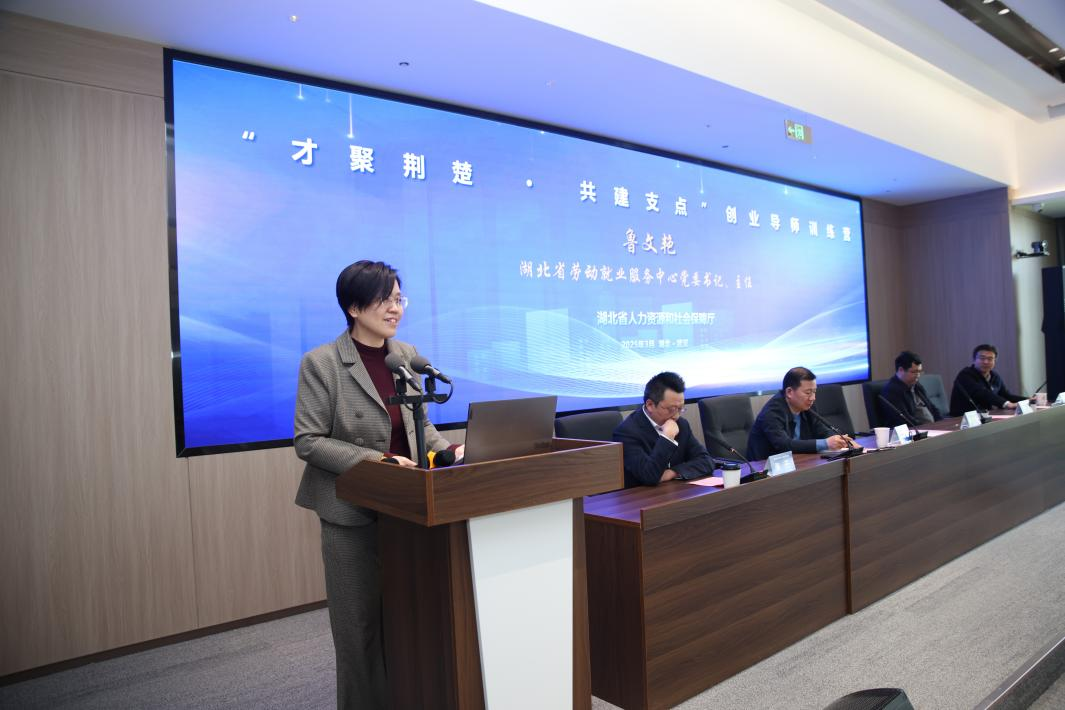
Chi Zongbao, Deputy Secretary of the Youth League Committee at Wuhan University, expressed that although the four-day camp was short, it left a deep mark on his career. He realized that "Building a Support Point" is not just a strategic slogan but a responsibility that requires active engagement. As an entrepreneurial mentor, we should be both the "walking stick" that helps entrepreneurs climb and the "bearing wall" that supports regional development. In the future, he plans to use this learning experience as a starting point to continuously improve his professional abilities and contribute to Hubei's rise as a central strategic point in the nation's development.
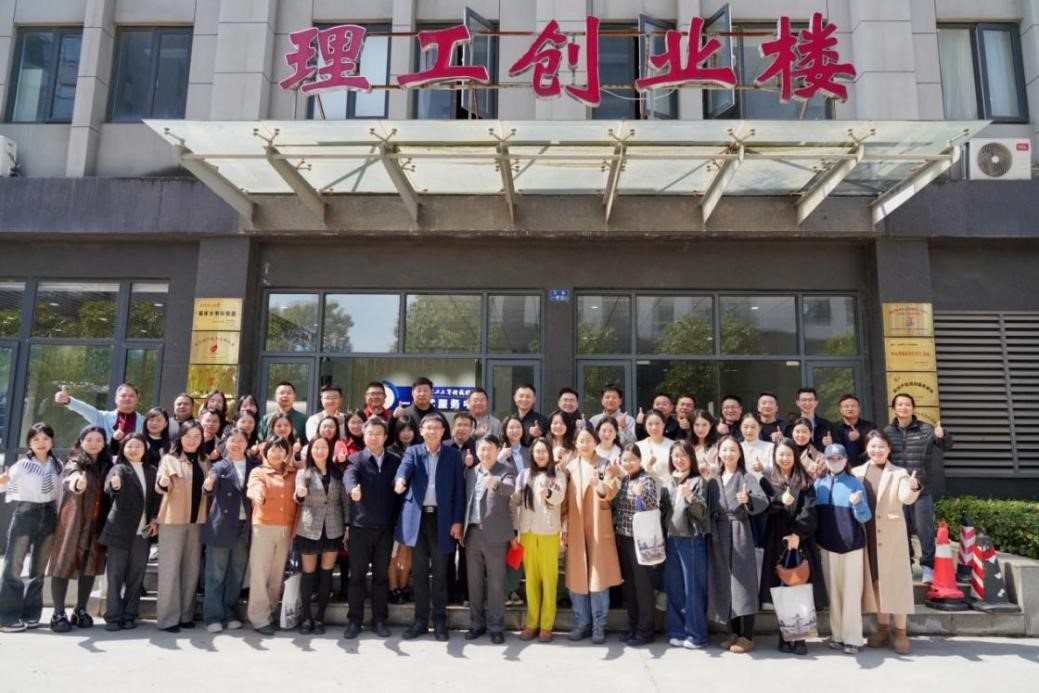
The successful holding of the "Talent Gathering in Jingchu · Building a Support Point" Entrepreneurial Mentor Training Camp will cultivate a batch of excellent entrepreneurial mentors for Hubei Province, improve the quality and efficiency of university entrepreneurship training and mentoring, and encourage more university faculty and students to engage in innovation and entrepreneurship. This will inject new momentum into Hubei's strategic efforts to accelerate the rise of the central region, help Hubei achieve greater breakthroughs in innovation and entrepreneurship, and promote the high-quality development of the regional economy.
Written by: Zhan Tiancheng, Liu Xinyi
Reviewed by: Peng Huatao, Yu Ping